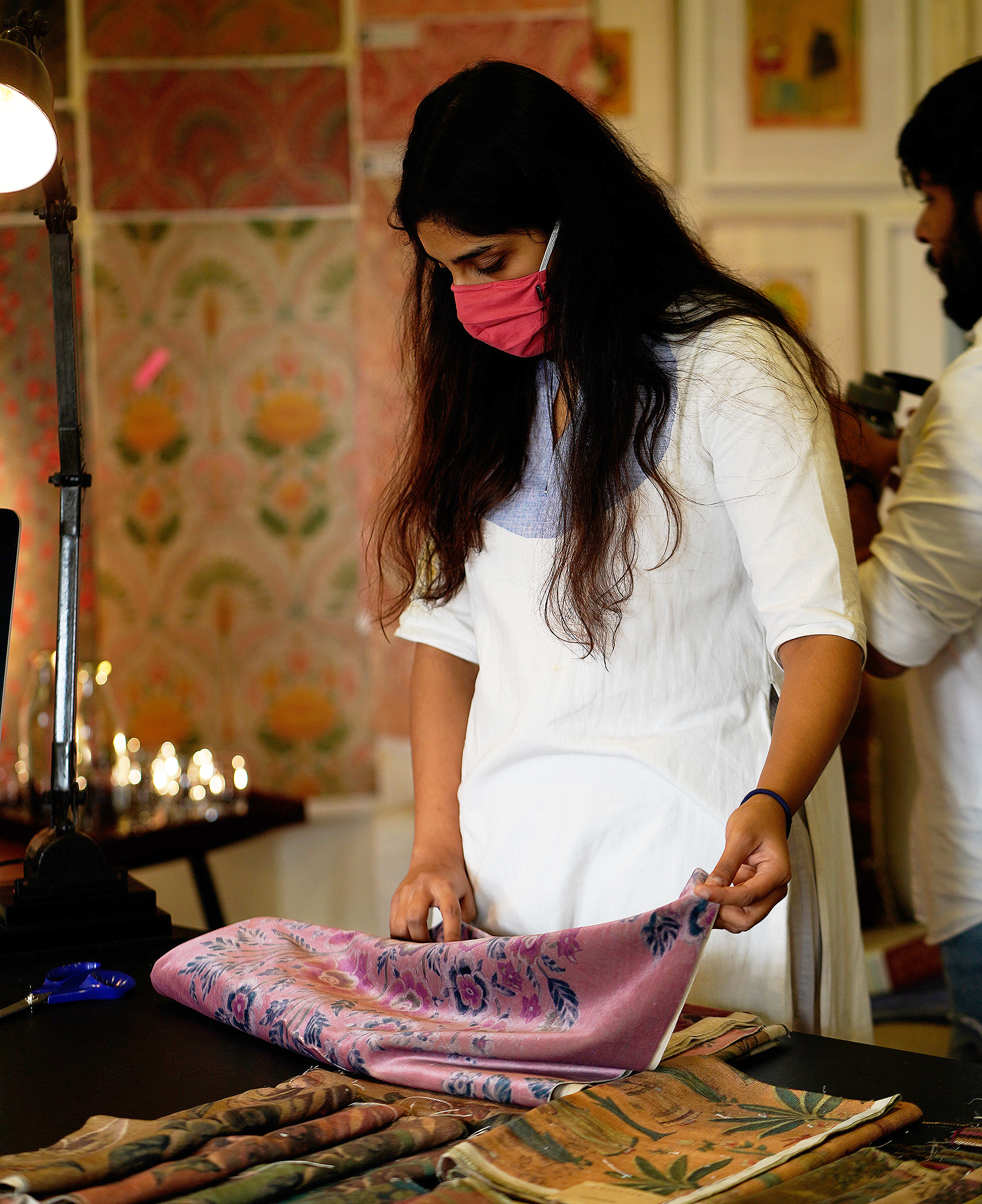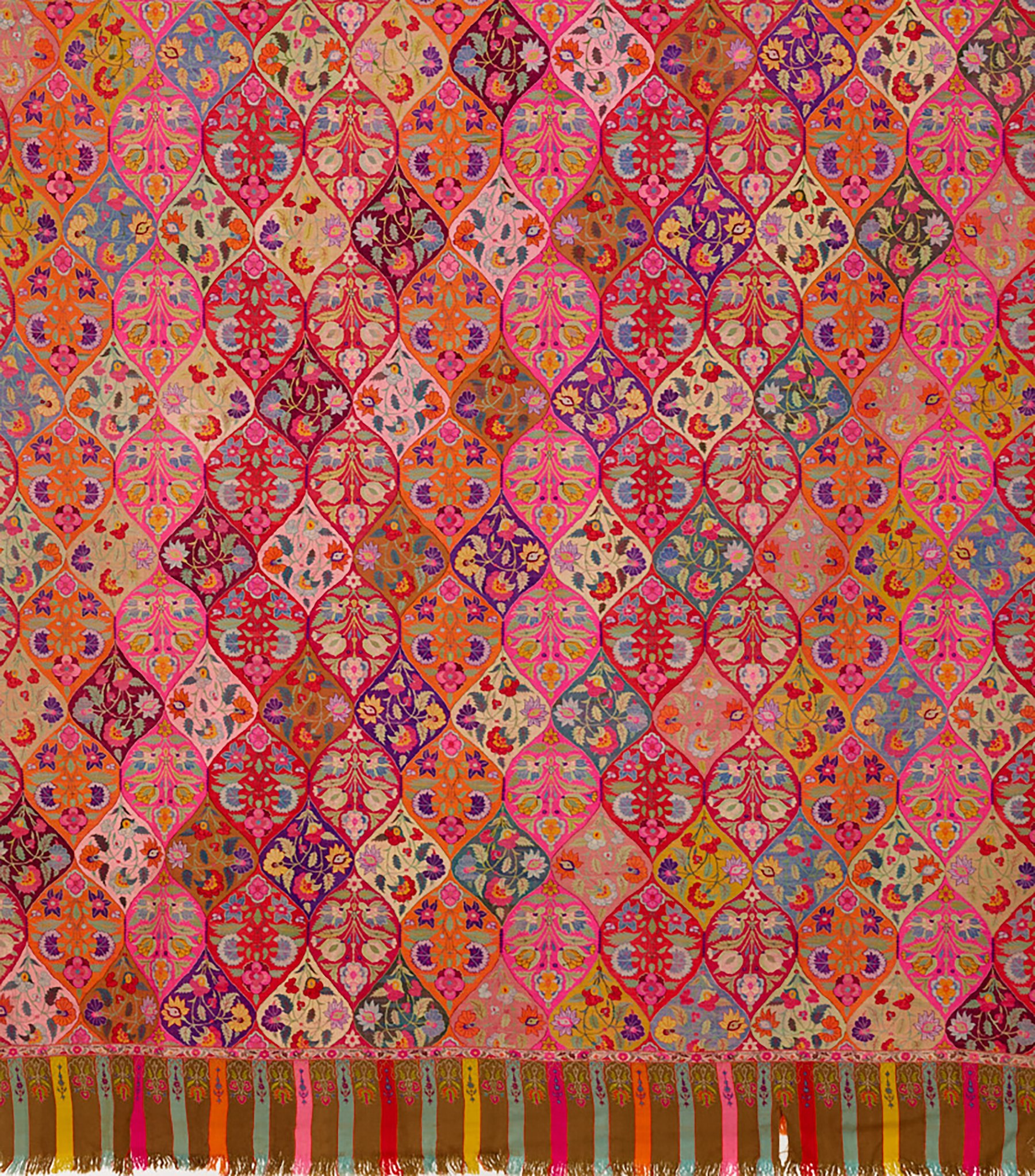Three RISD Architecture students are working to build a more inclusive reference archive that integrates non-European forms.
SPUR-Funded Research Underway

Juniors Gina Vestuti 23 SC and Yukti Agarwal BRDD 24 TX are using Student Provisional Ubiquity Research (SPUR) grants awarded by RISD Research to fund extracurricular projects promoting social equity and inclusion. Vestuti is interviewing Mississippi-based folk and blues musicians in an attempt to uncover how music can serve as a form of oral history. Agarwal is working closer to home, studying the RISD Museum’s collection of Kashmiri shawls and bringing native voices into the conversation about the colonial textile trade that originated in South Asia.
Recent alums Namrata Dhore BArch 21, Sofie Kusaba BArch 21 and Christina Truwit MArch 21 were also awarded SPUR funding in this cycle for Project Archive, their inclusive collection of architecture precedents.
“The SPUR Fund allows students to explore... creative approaches to research that has a transformative impact.”
“The SPUR Fund allows students to explore nontraditional and experimental frameworks, theories, methodologies and creative approaches to research that has a transformative impact,” says Director of Research Soul Brown. “The projects we’re funding advance RISD’s core values of critical making and thinking and its strategic priorities of social equity and inclusion, innovation and sustainability.”

Vestuti’s interest in social equity and inclusion is reflected in her project’s focus on contemporary artists of color, whose communities and environments shape the music they create. “There are lifetimes of stories that have been obscured by white supremacy and have survived in covert formats,” she explains. “My long-term goal is to tell those stories in the form of a documentary film.”
“There are lifetimes of stories that have been obscured by white supremacy and have survived in covert formats.”
As a white researcher working in historically Black spaces, Vestuti finds herself continually navigating around the pitfalls of cultural appropriation. “I’m focusing on building relationships and also asking the musicians how they want to be represented and what they want communicated about their work,” she says.

Project advisor and Assistant Professor of Film/Animation/Video Sara Jordeno speaks highly of Vestuti’s respectful approach to working with documentary subjects and her deep awareness of white privilege. “Gina’s innovative approach to documentary storytelling shows extraordinary promise,” they add. “The SPUR grant will make it possible for her to continue developing a body of work and help her reach her goal of pursuing documentary film as a profession.”

The project advisor for Agarwal’s research is RISD Museum Curator of Costumes and Textiles Kate Irvin, who enthusiastically supports her goals. “Yukti’s thoughtful proposal to engage with contemporary Kashmiri weavers and embroiderers and bring their voices and expertise into the museum will resonate for years to come,” she says, “and will no doubt serve as a model for multiple future initiatives.”
“Yukti’s thoughtful proposal to engage with contemporary Kashmiri weavers and embroiderers... will resonate for years to come.”
Agarwal began studying the RISD Museum’s collection of historic Kashmiri shawls during her 2020/21 term as a research and curatorial assistant. “In researching the museum’s collection, I realized the need for greater understanding of the material processes that go into the creation of these shawls,” she says, “from the grazing of the endangered Changpatani goats whose hair is used to spin the yarn to the dyeing of the yarn to the weaving of the shawls on old pine looms.” The labor that goes into such masterful creations, and the people who carry it out, are often overlooked, she explains.

Agarwal recently completed months of online audio and video documentation, speaking directly with the artisans who create the shawls in India’s Kashmir Valley. Their completed samples have been shipped to Providence, where they are currently being analyzed in the museum’s lab and compared to the historic shawls in the permanent collection to confirm that they were crafted in the same tradition and to determine how the process and materials have changed (if at all) since the 1800s.
“As a woman of color, my research worldview is one that prioritizes the women who created these pieces and are usually placed in the shadows.”
When this phase of the research is complete, Agarwal plans to update the museum’s catalogue and share her documentation online with museum visitors and RISD students. She also recently put together a small exhibition of intricately embroidered Kashmir jamawars gifted to the museum in 1955 by Lucy Truman Aldrich.
“As a woman of color, my research worldview is one that prioritizes the women who created these pieces and are usually placed in the shadows,” she says. “This project is my attempt to provide greater insight into the story of creation from the perspective of the artisan and to further the museum’s aim to decolonize their space.”
—Simone Solondz
SPUR grants are funded on a rolling basis. Visit the RISD Research information page for information about how to apply.
March 22, 2022


